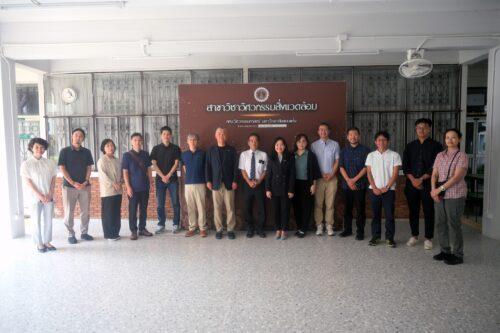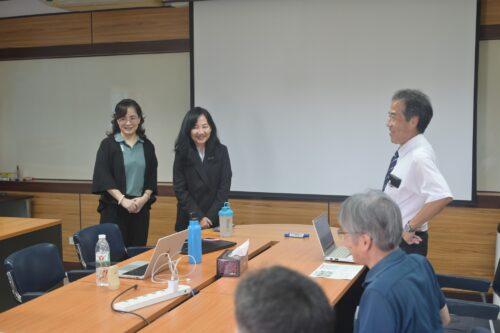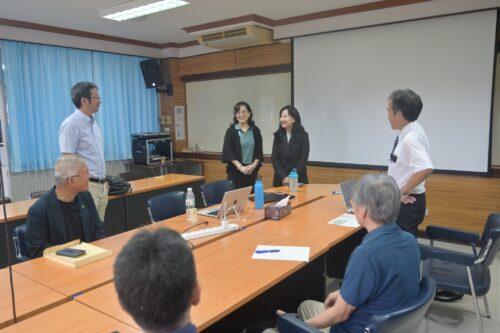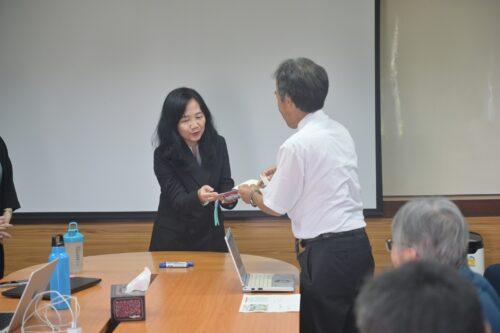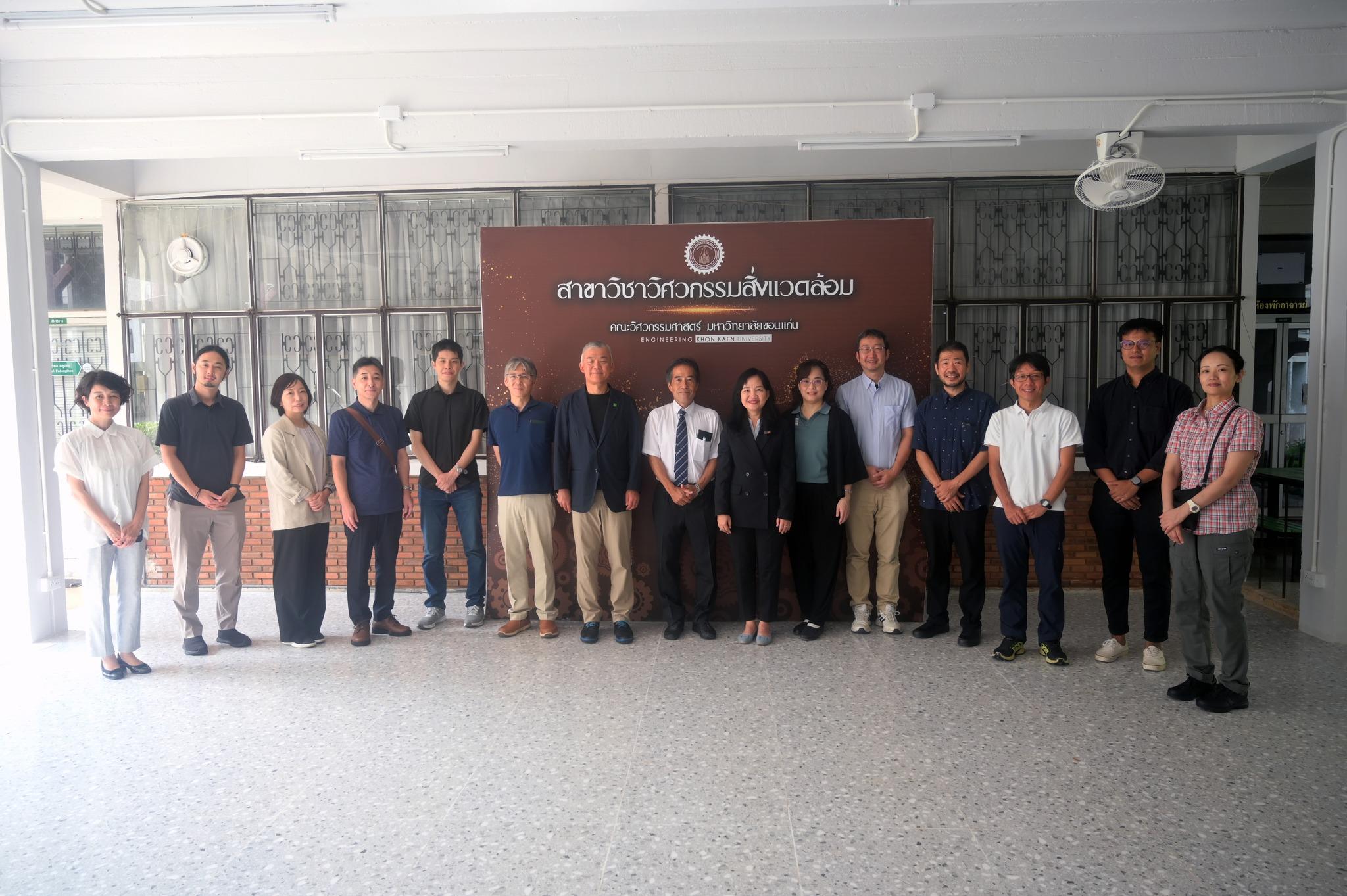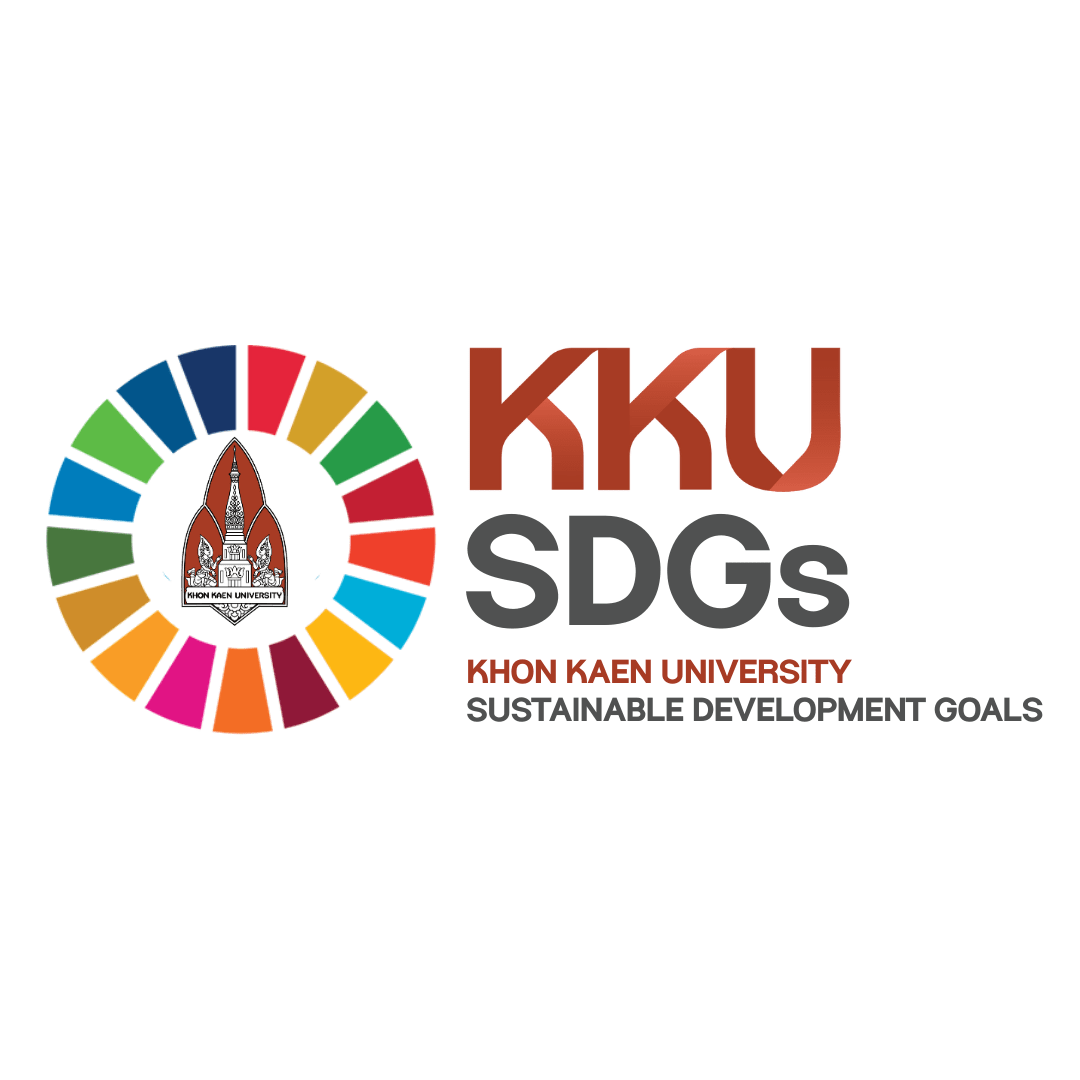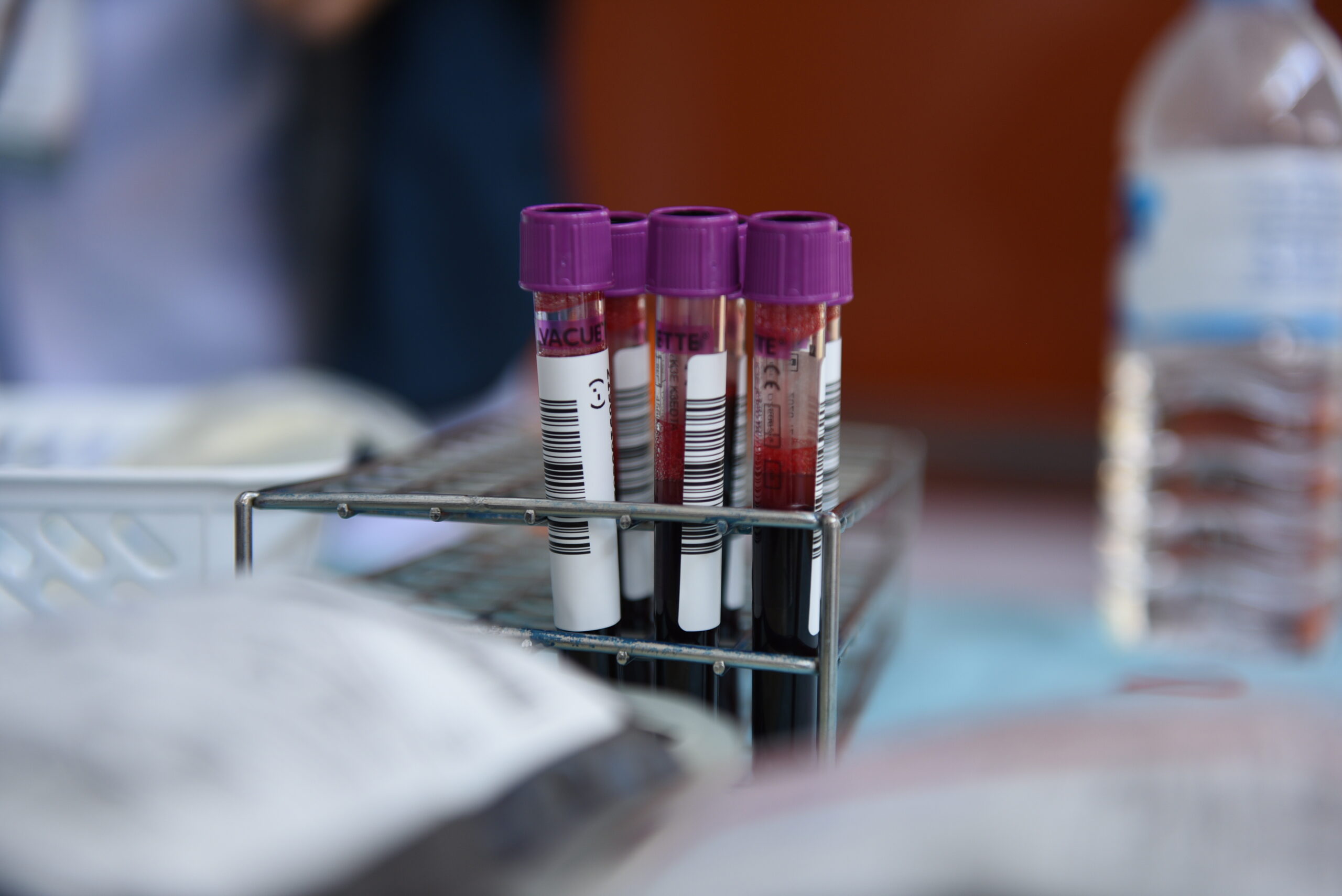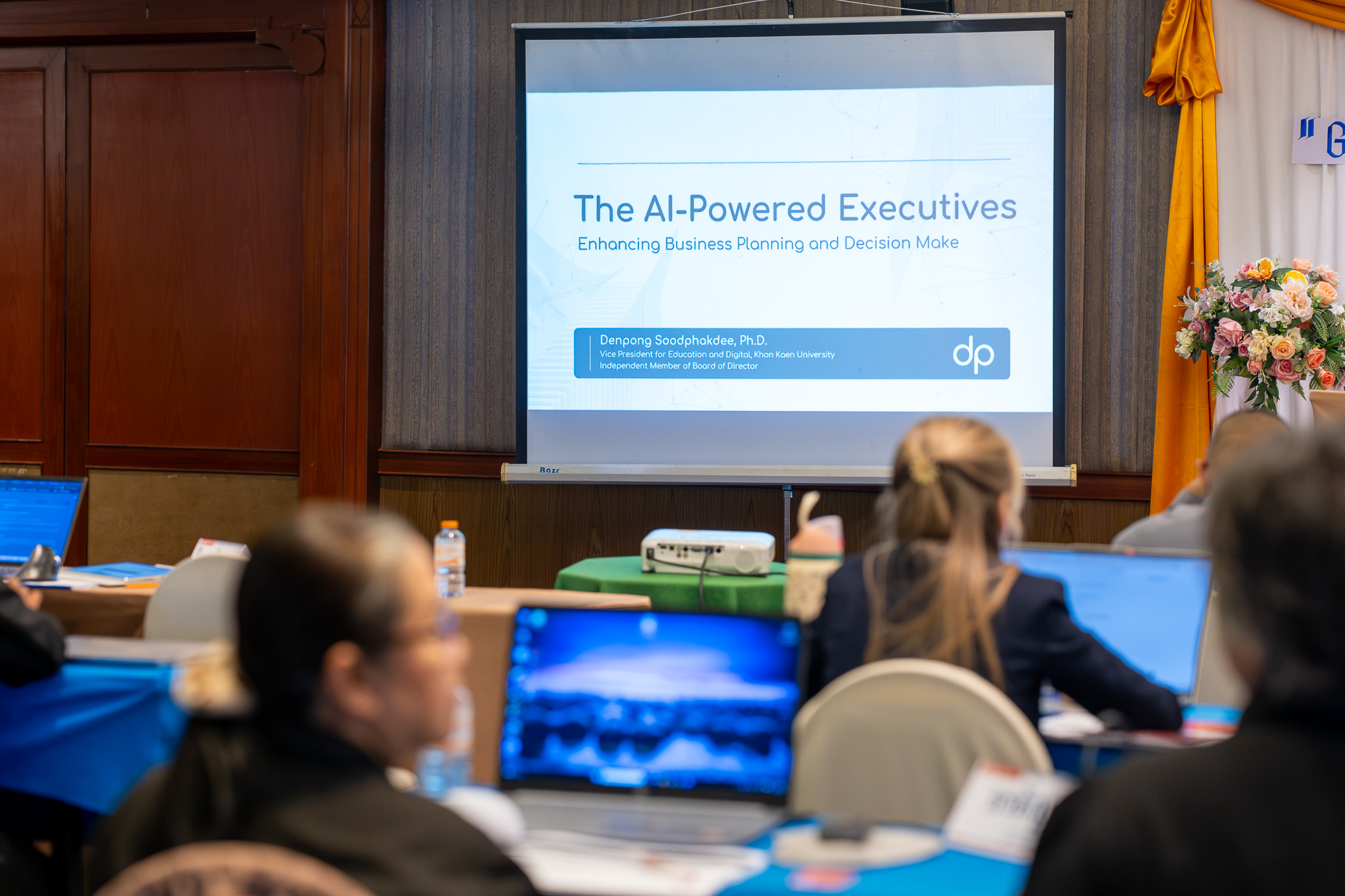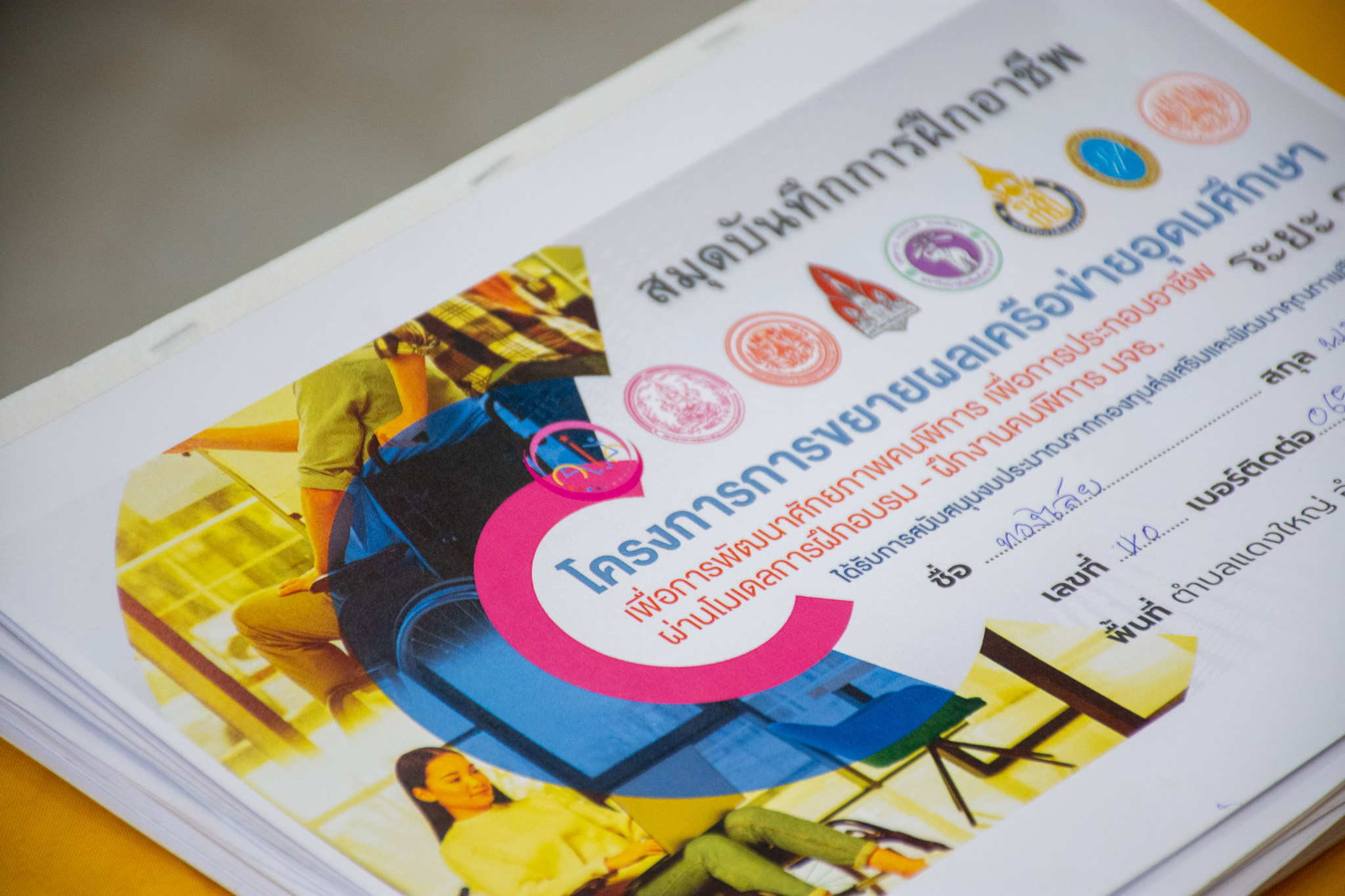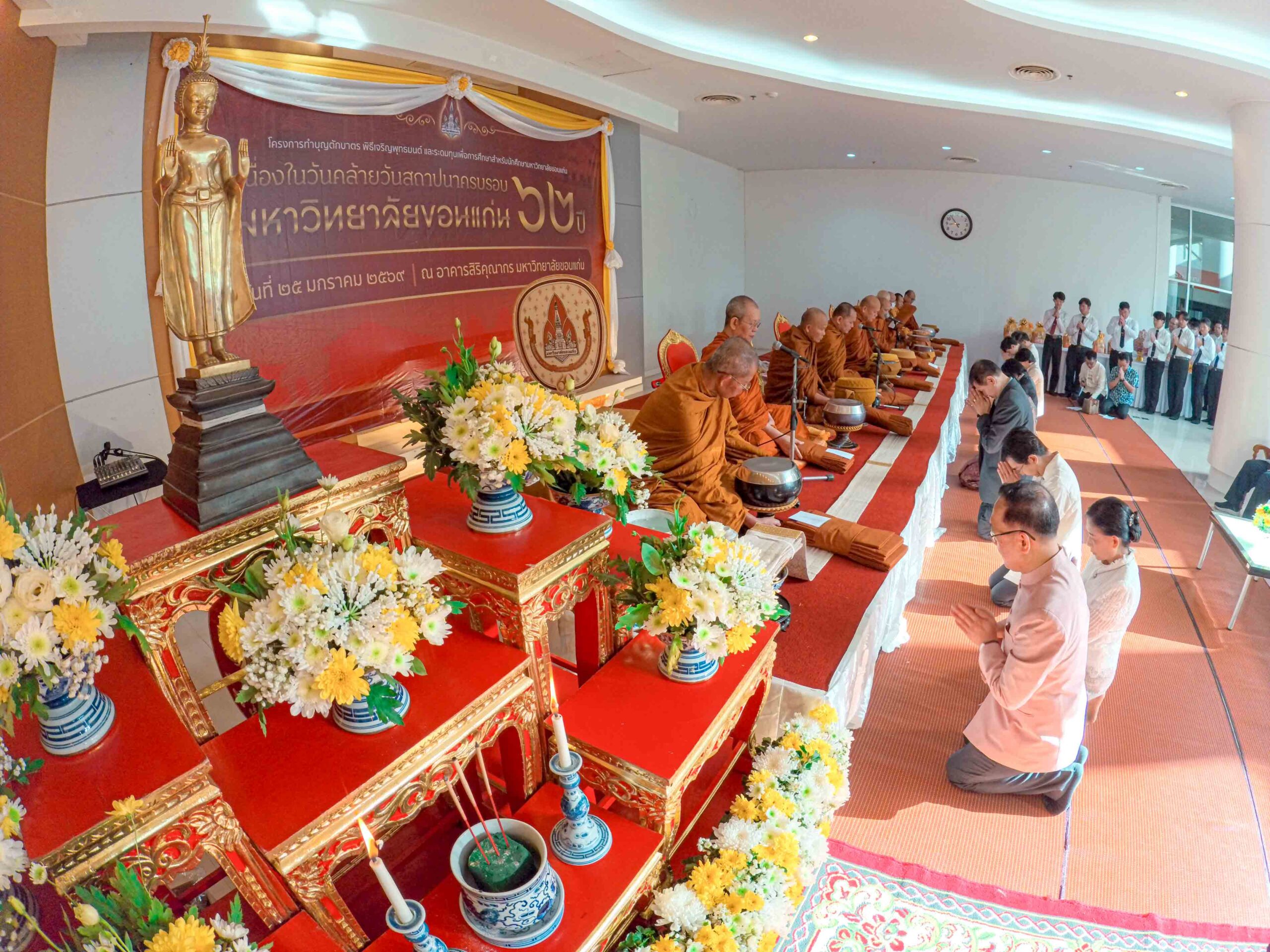The Faculty of Engineering at Khon Kaen University (KKU) recently welcomed a delegation of Japanese researchers to review the progress of a collaborative project on biomethane production from duckweed.
The visit, held on September 22, 2025, was conducted under the framework of the SATREPS (Science and Technology Research Partnership for Sustainable Development) program, overseen by the Japan Science and Technology Agency (JST) and the Japan International Cooperation Agency (JICA).
The Japanese delegation was led by Professor Masaaki Morikawa of Hokkaido University and Associate Professor Kengo Kubota of Tohoku University. They were received by Associate Professor Pairaya Choeisai of the Environmental Engineering Department, who serves as the head of the “Biomethane Production” component of the larger research initiative.
The overarching project, titled “Development of the Duckweed Holobiont Resources Values towards Thailand BCG Economy,” is a joint research effort between Thai and Japanese scientists.It aims to enhance the utilisation of duckweed as a biological resource and scale up clean energy production in the form of biomethane, thereby supporting Thailand’s national Bio-Circular-Green (BCG) economic model.
The purpose of the visit was to monitor and evaluate the operational progress and achievements of the project component led by the KKU team.
